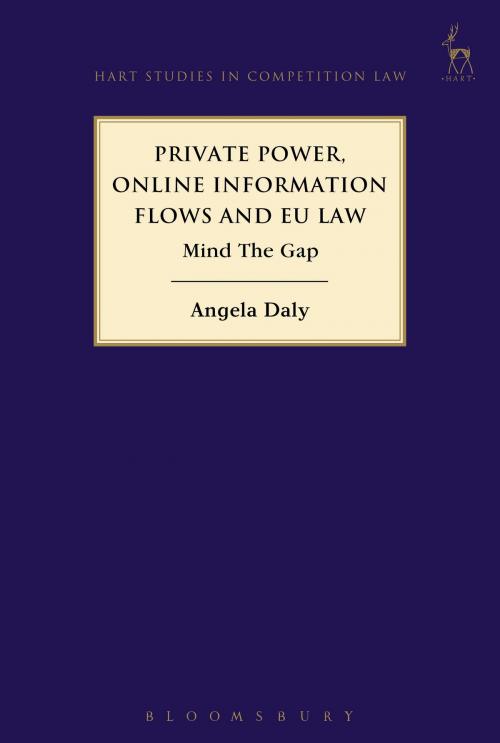Private Power, Online Information Flows and EU Law
Mind The Gap
Nonfiction, Reference & Language, Law, Antitrust, International| Author: | Dr Angela Daly | ISBN: | 9781509900657 |
| Publisher: | Bloomsbury Publishing | Publication: | December 1, 2016 |
| Imprint: | Hart Publishing | Language: | English |
| Author: | Dr Angela Daly |
| ISBN: | 9781509900657 |
| Publisher: | Bloomsbury Publishing |
| Publication: | December 1, 2016 |
| Imprint: | Hart Publishing |
| Language: | English |
This monograph examines how European Union law and regulation address concentrations of private economic power which impede free information flows on the Internet to the detriment of Internet users' autonomy. In particular, competition law, sector specific regulation (if it exists), data protection and human rights law are considered and assessed to the extent they can tackle such concentrations of power for the benefit of users. Using a series of illustrative case studies, of Internet provision, search, mobile devices and app stores, and the cloud, the work demonstrates the gaps that currently exist in EU law and regulation. It is argued that these gaps exist due, in part, to current overarching trends guiding the regulation of economic power, namely neoliberalism, by which only the situation of market failure can invite ex ante rules, buoyed by the lobbying of regulators and legislators by those in possession of such economic power to achieve outcomes which favour their businesses. Given this systemic, and extra-legal, nature of the reasons as to why the gaps exist, solutions from outside the system are proposed at the end of each case study. This study will appeal to EU competition lawyers and media lawyers.
This monograph examines how European Union law and regulation address concentrations of private economic power which impede free information flows on the Internet to the detriment of Internet users' autonomy. In particular, competition law, sector specific regulation (if it exists), data protection and human rights law are considered and assessed to the extent they can tackle such concentrations of power for the benefit of users. Using a series of illustrative case studies, of Internet provision, search, mobile devices and app stores, and the cloud, the work demonstrates the gaps that currently exist in EU law and regulation. It is argued that these gaps exist due, in part, to current overarching trends guiding the regulation of economic power, namely neoliberalism, by which only the situation of market failure can invite ex ante rules, buoyed by the lobbying of regulators and legislators by those in possession of such economic power to achieve outcomes which favour their businesses. Given this systemic, and extra-legal, nature of the reasons as to why the gaps exist, solutions from outside the system are proposed at the end of each case study. This study will appeal to EU competition lawyers and media lawyers.















